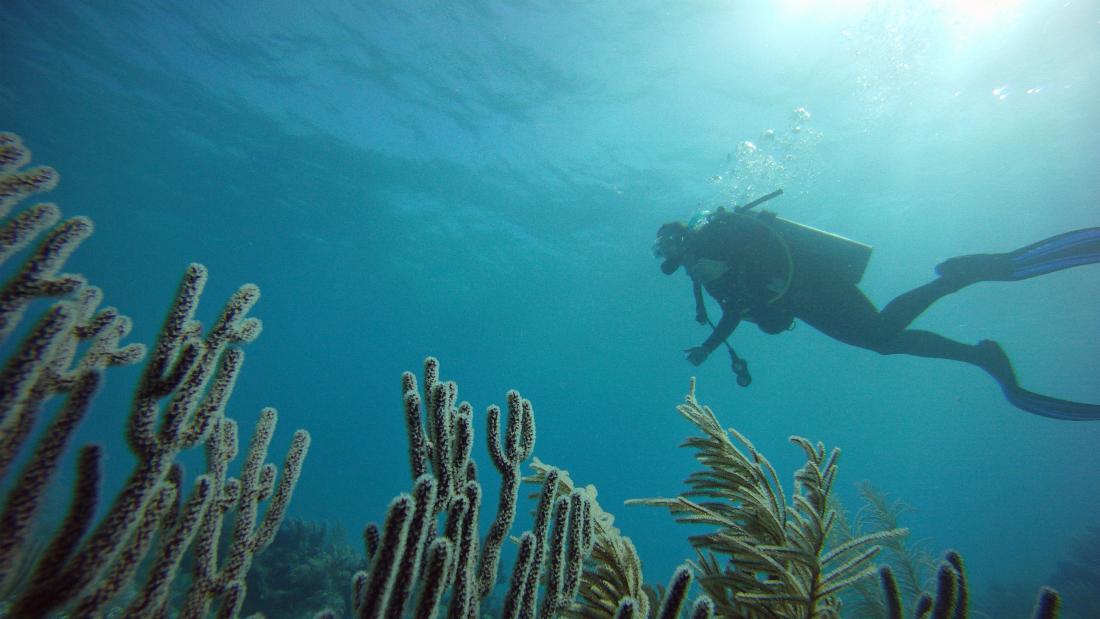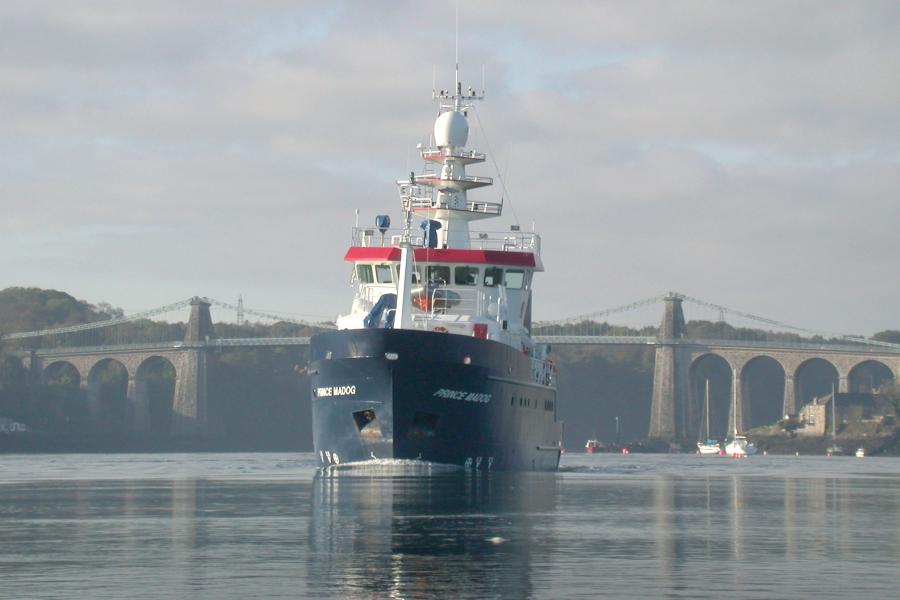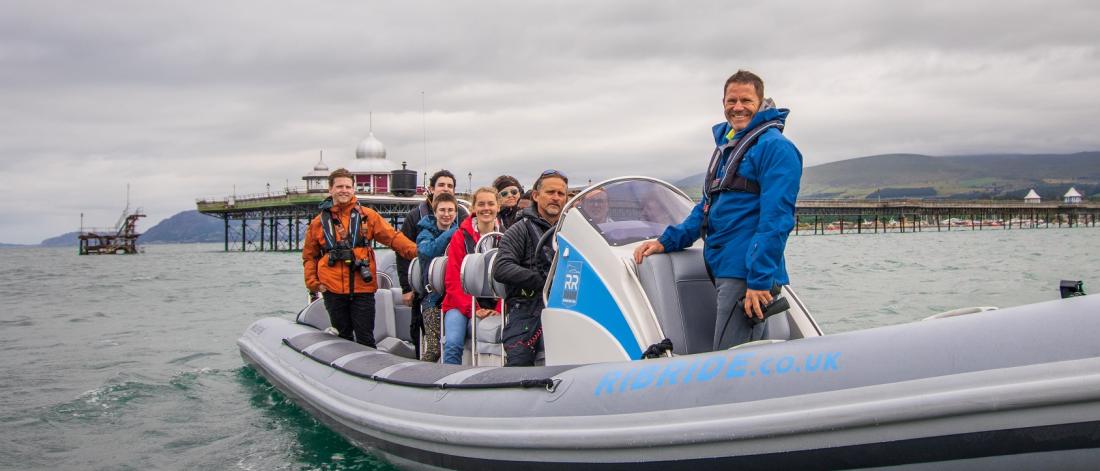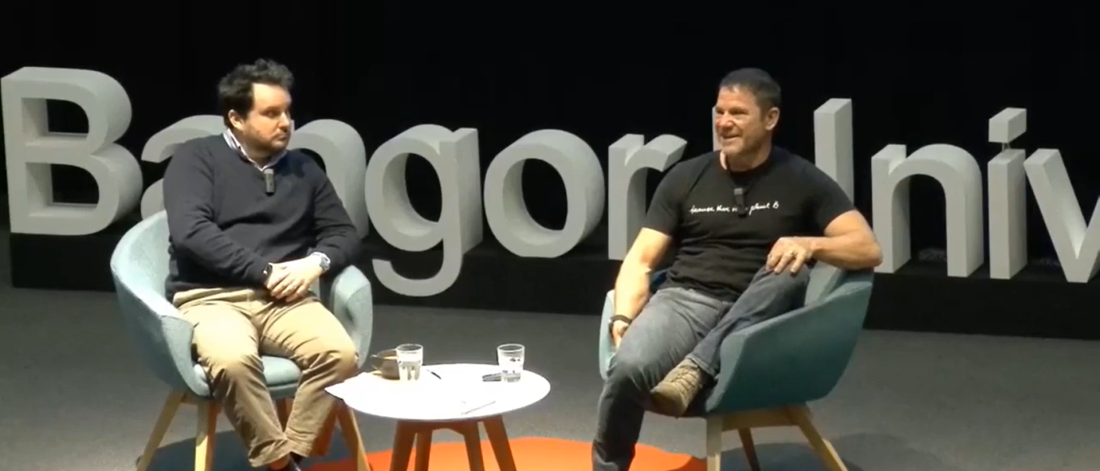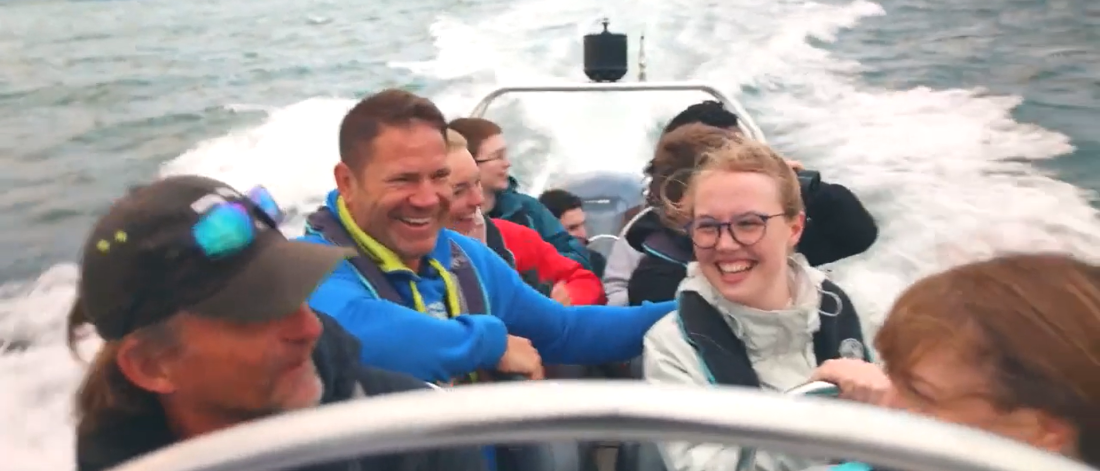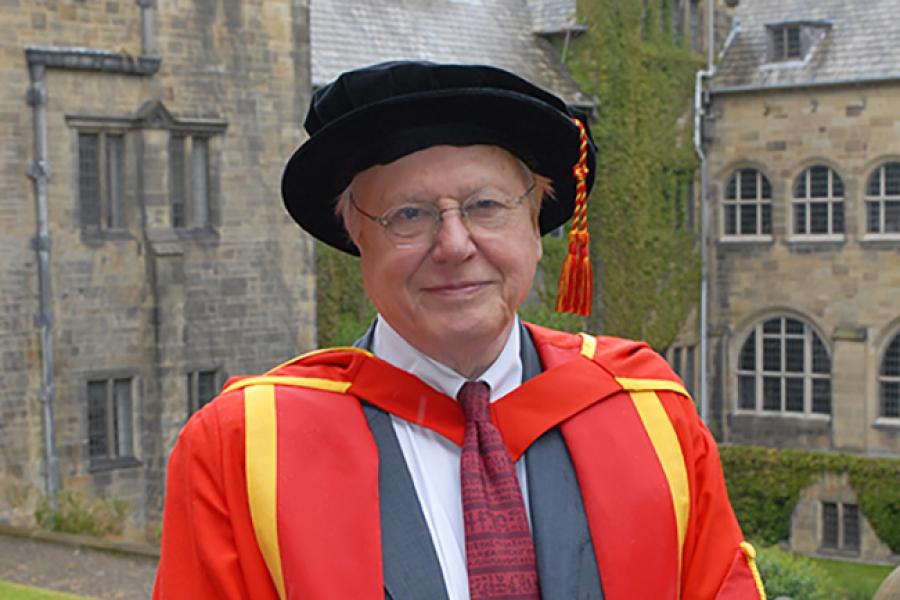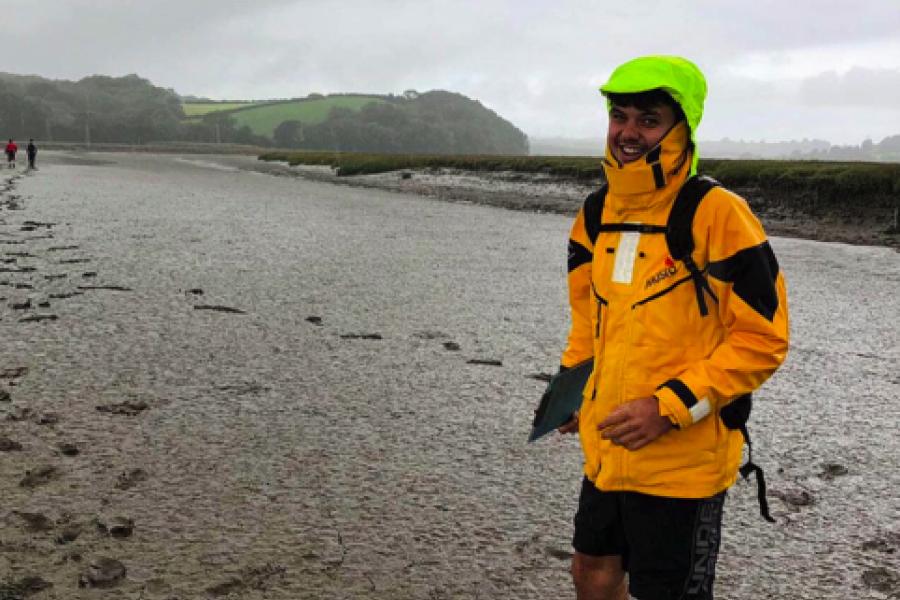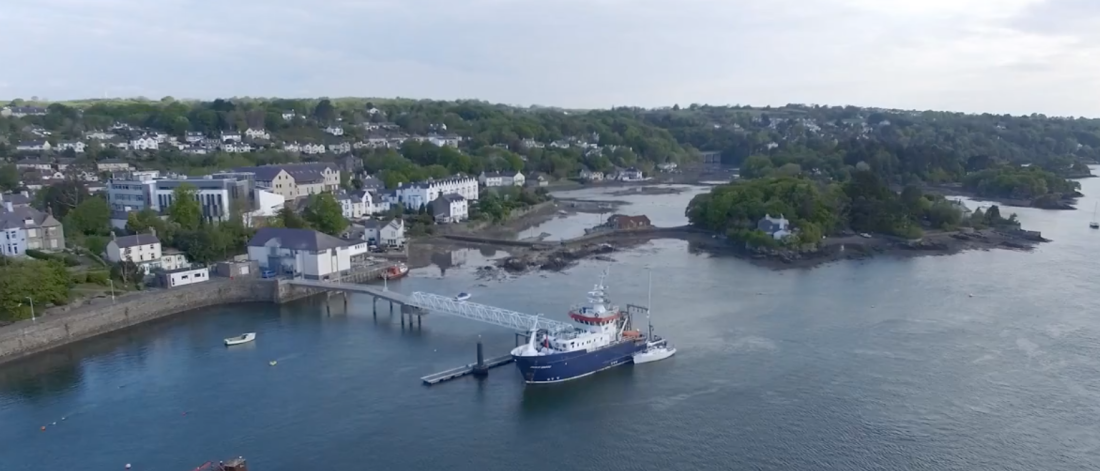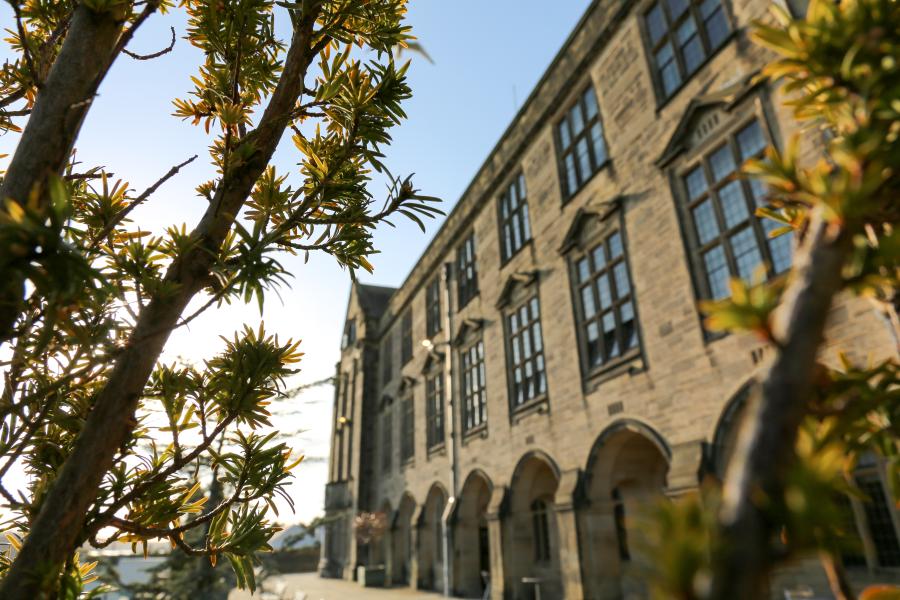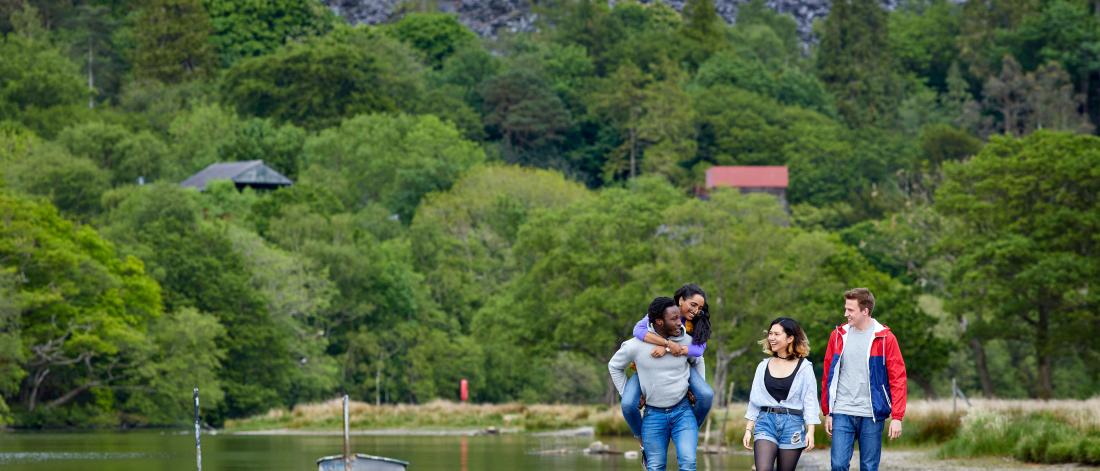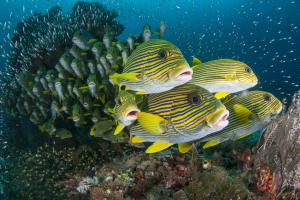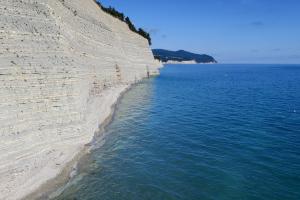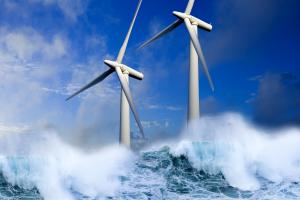Find the right Ocean Sciences course for you
Why Study Ocean Sciences?
The need to identify and exploit new food and energy sources against a backdrop of the threats posed by global warming make ocean sciences very much a subject of the future. It is all about identifying problems and finding solutions.
Understanding how the oceans work is key to predicting how our planet is going to respond to our warming climate. It is also important if we are to efficiently harness the huge but largely untapped potential of renewable tidal energy. By studying the physics of the ocean, you will learn about how the ocean works and interacts with other elements of the Earth System, the atmosphere and cryosphere. You will also learn about how to observe the ocean, both from ships and from space, and to develop numerical models for the prediction of the ocean.
You will gain the tools to be able to tackle important problems linked to climate change and to extracting energy from the ocean.
- We are one of the largest university centres teaching marine sciences in Britain and is one of the biggest in Europe.
- We are situated within a few metres of the sea, ideal for developing skills in estuaries, on the sea shore and at sea.
- We have a £3.5m ocean-going research ship.
I don't have many regrets, but not studying at Bangor is one of them.
[0:04]
And I'm incredibly lucky that very early in life I realised that I had this one thing that could always make me feel better.
[0:08]
Didn't matter how low I was plunging, that I had somewhere that I could take myself, where I could reset,
[0:16]
where I could remind myself of where I come from and what is special to me and the things I'm passionate about.
[0:22]
And it doesn't matter if it's up in the mountain or in a in a lake or in the sea.
[0:28]
Those are the things that just reset me.
[0:32]
And so I would say that, you know, you see yourself getting getting down, take advantage of all of the absolute wonders that we have here.
[0:40]
The people, you know, in the nation will travel hundreds of miles to come and see.
[0:45]
You have them right on your doorstep. You might only be here for three years or four years.
[0:49]
Take take advantage of them because it is so, so special.
[0:55]
And, you know, there is nothing that can compare to being up on the Glyderau or the, you know, the Carneddau as the sun is just starting to rise.
[1:04]
Standing on top of Tryfan and looking at all those mountains and just knowing that this right now is
[1:10]
your home and your place - embrace it. You've all made the best decision of your lives in coming here.
[1:15]
And I just want you all to make the most of it, treasure it, use it as best as you possibly can, you know, on your doorstep.
[1:22]
You have natural wonders that almost nobody else at university in this nation has.
[1:26]
So please, please use them to their full extent. And I promise I'll be back and see you sometime soon while you're here.
[0:03] So, so excited! It's so great to meet Steve! It's just such a great opportunity, to even see the
[0:09] Menai Strait in a different way as well.
[0:12] One of the reasons why I chose Bangor initially, was to be in such an area as this
[0:16] There's no better way to spend the afternoon really!
[0:23] We're heading out into the Menai Strait and off to Puffin Island with a group of students of the natural sciences.
[0:28] To get a flavour of the very finest of this area has to offer.
[0:47] Well, so far we've seen kind of all the very best of the wildlife from this part of the world, particularly when it comes to the birds.
[0:53] The ledges are thick, almost every single centimetre is covered with guillemots, a gull...
[0:59] and we've seen gannets and of course puffins as well.
[01:02] I guess this is why I decided to build a relationship with Bangor.
[01:06] What you can see right here. You know, any institution can invest in its infrastructure.
[01:11] Any institution can get bigger buildings or get more teaching.
[01:14] But there's no amount of investing that can get this.
[01:18] Having this on your doorstep is why Bangor is the best place to study natural sciences in the nation.
[01:30] It is fantastic. You know, obviously not just the company with having Steve there, it's seeing the wildlife that we saw the kittiwakes
[01:37] there cormorants the seals and that sort of stuff. Absolutely phenomenal, like once in a lifetime.
[01:41] Steve is such a genuine lovely guy. Yes, absolutely amazing. There's no better place to be.
[01:46] It's been a pretty amazing afternoon. I feel a little bit buffeted and and chilled.
[01:51] But to be able to head out from you know, you can see the University from here.
[01:56] You can see the halls of residence from here. To be a student here and think that you could finish studying,
[02:01] come down and get on a paddleboard or a kayak and head out into the Menai Strait and have this is your way of relieving exam stress.
[02:08] I mean, that just absolutely blows my mind.
Watch - Lab Session
Hi, I'm Martin Roberts. I'm a Biological Oceanographer here at the School of Ocean Sciences.
And today we're in the laboratory practical for the OSX2007 Ship-based Field Course, which makes use of the the Prince Madog to go to sea and to sample variables in space and time.
Today we're splitting into three groups. We're doing different activities.
We've got sediment grain size analysis going on downstairs where we're looking at, grain size distributions so that we can make inferences about current conditions and sediment transport.
We've got suspended sediment analysis. We've got a group working upstairs that are doing post-processing of samples that were taken at sea.
We've got chlorophyll fluorescence measurements going on as well, so that we can understand the productivity of our of our sea here in the Menai Strait
And we've also got plankton analysis as well. So identification of different plankton groups and counting of those plankton groups in, in samples that we collected at sea on the Prince Madog in November.
Hello everybody. My name is April Bishop. I am a second year student here at Bangor University, and I'm doing Marine Biology and Oceanography.
One of the best things I like about here at Bangor, because you get the opportunities to go into the landscapes that we are in here today.
We are focusing on one of our ship based modules. Which you will have the joys to go on the ship at one point in your second year?
And today we have been focusing on different stuff that we're going to do that we did on the ship.
And what I like more about the practical, is that the Labs here is just such a big space for you to work in, and you've got such a big opportunity in as well, many lectures as well as demonstrators who help you to help you understand and help you learn more about things that you have an interest in.
One of my main, main things I really love being here is the opportunities that you do get here.
As myself, I do peer guided, on an occasional basis. as well I have been involved with Marine Master's research in my foundation here, and I have had work experience at a tidal renewable company called Minesto. Yeah thats basically it.
Watch - Study Ocean Sciences
Take a 360 virtual tour of our facilities
Marine Centre Wales Courtyard
Marine Centre Wales contributes to the wider impact of research by the School of Ocean Sciences. It supports the blue economy by linking academic research to real-world applications.
Marine Centre Wales balcony
We're very lucky to be located right beside the Menai Strait in Anglesey's Area of Outstanding Natural Beauty with views across the water towards Snowdonia.
Sarah Jones seminar room
The Sarah Jones Seminar room, where you'll join us to hear about our latest world leading research.
Marine Centre Wales conference room
This is one of our conference rooms where you might join us for tutorials, discussions or other meetings.
Coldwater aquarium
This coldwater aquarium supports our research and teaching with a range of local species. All our aquaria are Home Office approved with filtered seawater directly on tap from the Menai Strait.
Craig Mair building
Much of our teaching and research takes place in the Craig Mair building which includes our largest teaching laboratory for undergraduate degree studies.
Sedimentology laboratory
Mud, clay, sand and silt in all shapes and colours! The sedimentology laboratory is where we sift, sort, analyse and learn about marine sediments. These range from core samples from deep below the earth's surface to sand from nearby beaches.
Hydrodynamics laboratory
Our Hydrodynamics Laboratory is an experimental facility for the simulation of water and sediment movements by waves, tsunamis, tides, rivers and density currents. We have three experimental flumes, the largest 10m in length equipped with a wave generator.
Dennis Crisp suite
Named the Dennis Crisp Suite after one of our founding scientists, this area is dedicated to our Masters degree programme students comprising laboratories, seminar rooms, teaching areas, a computer room and the masters common room.
Craig Mair Balcony
The balcony outside the main teaching laboratory is a pleasant place to take a breather and enjoy the views.
Main teaching laboratory
All good science starts in the lab. This is our dedicated teaching lab where, as a student, you'll carry out marine biology and oceanography practicals in first and second year. Our practicals give you many skills including anatomy, physiology, animal behaviour and species identification.
Algal culture Laboratory
Our Algal Culture laboratory provides many of the bare ingredients to support our aquaria, teaching and research.
Rest area
If you're studying with us, you can relax here between sessions.
Do you have a question about life as a Bangor University student? Our ambassadors will be happy to help you find the answer.
They can tell you more about studying here, about the amazing Clubs and Societies we have, and how they made friends and settled in to life at university as an Ocean Sciences student.
If you have any questions about the course, our lecturers are on hand to help. Below are some examples of frequently asked questions. Can you think of any more?
- What are the qualities of a successful Ocean Science student at Bangor?
- How can I prepare myself to study Ocean Science at Bangor?
- How will I know that Ocean Science at Bangor is the right choice for me?
Our Research in Ocean Sciences
Ocean Science research at Bangor University spans the globe. Our world-leading research looks to identify the causes of Arctic Sea ice retreat and the impact of global warming and plastic pollution on tropic coral reefs. In collaboration with the British Antarctic Survey and others we have recently found worrying levels of microplastics in pristine Antarctic fjords.
Our research delves into the Earth’s history. We have developed techniques to quantify past climates on the planet and use complex numerical models to look at the key processes driving those past climates. We have recently identified a ‘tidal super cycle’ linked to continental drift and now understand how tides might have influenced evolution of life on Earth. We have worked in collaboration with NASA to examine the role ocean tides in the evolution of an early Venus.
We are also a leading institute for research into fisheries science and the generation of tidal renewable energy.
You may also be interested in these related subject areas.
You may also be interested in these related subject areas.

